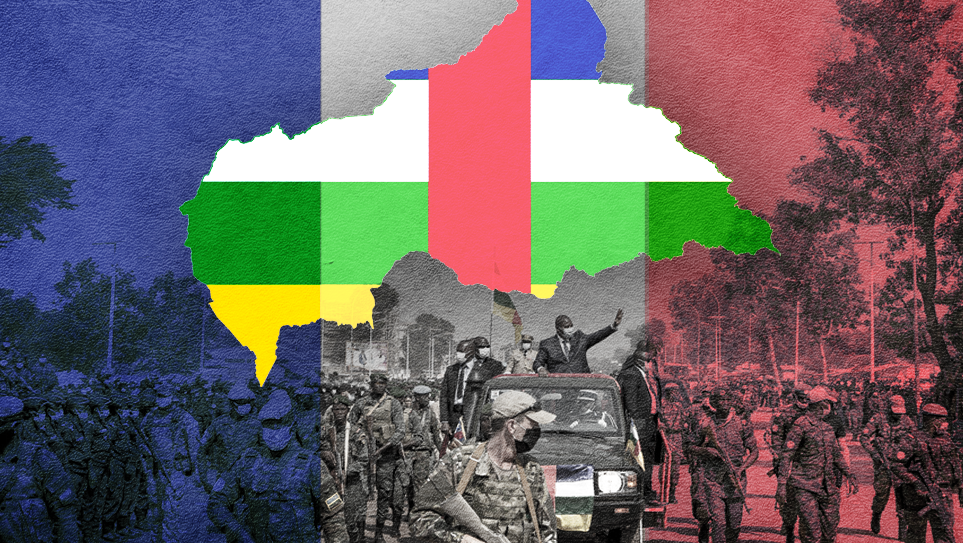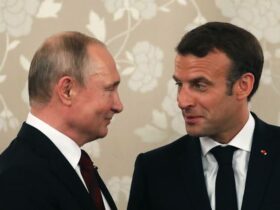By Ali Rıza Taşdelen
In order to understand the recent events that have taken place in the Central African Republic, we first have to look into the imperialist plans of France and the United States, and the military coups and interventions they plot to achieve these plans. We also have to understand the country’s relationship with China and Russia.
Today, in almost every political, economic, and military equation that takes place in Africa, we find a thriving China, Russia, and Turkey, and the decline of the influence of the United States and France. Whichever country in Africa we zoom on in, we see a receding Atlantic camp, and a growing and thriving Asian camp. While the United States and France had been struggling among themselves to share the riches of Africa back in the 20th century, they have suddenly started to act together against China and Russia since the beginning of the 21st century.
French putsch
François Bozizé came to power in the CAR in a coup backed by France in 2003. But by 2012, Bozizé had gone rogue, improving the nation’s economic ties with China and South Africa, and sending 40 CAR officers to China for military training. The relations Bozizé initiated with China were even mentioned in the WikiLeaks documents: “Chinese influence in the Central African Republic is becoming more and more prominent”, “Besides miserable French economic investments and its receding influence, it is China that mainly benefits from the uranium, gold, diamonds, and iron reserves of the Central African Republic”. Thus, the Atlantic camp decided that the Chinese must be stopped.
At the end of 2012 Séléka militia groups were armed and provoked against the government with the support of the United States and France. Bozizé called on the West for help, but the call was left unanswered.
The former French President François Hollande responded to Bozizé’s call by saying, “We are sorry, we do not intervene on these issues anymore.” “The era of intervening in the internal affairs of countries and colonialism is gone now.” I still remember bursting into laughter when I heard Hollande’s statement on TV. When the Séléka militia turned the country into a bloodbath for four months, they never mentioned “human rights”. But when Bozizé took actions against French interests, he had to go.
Thus, they overthrew François Bozizé and replaced him with the Séléka leader Michel Djotodia. The new government immediately announced that the mining and oil agreements between the Central African Republic and China will be reviewed, and that they would seek help from the United States and France to build a new army.
However, Séléka was not a solid organization with a determined program. It was just a loose alliance formed by four separate armed groups, including the militia from Chad and Sudan, who were trained by the US Special Forces. After eight months of fighting, the country descended into chaos. Afterall, Séléka’s task was not to get in charge permanently, but rather to overthrow Bozizé and create chaos so that France could make a military intervention with the support of the “international community”, ie. the United Nations. That was exactly what happened, the French troops made a military intervention in the country “to ensure stability and bring peace.”
Ethnic strangling
The massacres got even worse as French troops began their operations on the streets of Bangui. The country experienced a full-fledged civil war that began a religious strangling.
The population of the CAR is 80% Christian and 15% Muslim. These religions had been coexisting peacefully for many years. After the Muslim Séléka militia came to power in a military coup, they began to carried out systematic attacks against the Christians. The Christian population also formed an armed militia group to protect themselves (Anti-Balaka).
Thus, the entire nation was plunged into a bloody conflict. These conflicts soon turned into a humanity crisis, which paved the way for a military intervention by France. The French disbanded the Séléka militia after it fulfilled its mission. France and the United States have also proposed to the UN Security Council to impose sanctions on Noureddine Adam, Séléka’s second man, which perished with Bozizé himself. The sanctions proposal was vetoed by China and Russia.
Christians, who have been attacked by Muslim militias for many months, welcomed the French troops cheerfully. They have committed “revenge” attacks on Muslims; killing hundreds of Muslims, looting their shops, attacking mosques, relying on the security provided by France.
Touadera is President again
Tensions have consistently been high since Faustin-Archange Touadéra, who was first elected president in 2016, made military agreements with Russia and improved its diplomatic relations in addition to its economic ties with China.
Chinese President Xi Jinping was among one of the first leaders to send a congratulatory message to Faustin-Archange Touadéra, who was re-elected as the President of the Central African Republic. In his message, Xi noted in his message that the development of China-Central African Republic ties has maintained sound momentum in recent years, and that he attaches great importance to bilateral ties. Xi also noted that he stands ready to work with President Touadera to promote bilateral friendly cooperation for more achievements, so as to benefit both countries and their people.
The scenario and the actors are the same today as they were in the past. In any country you look at in Africa, the conflicts that have taken place in every electoral campaign in the last 20 years are actually conflicts between the Atlantic and Asia. France was in pursuit of intervention in order to increase its receding military power by creating an environment of civil unrest and provocation against Touadéra right before the election. This time, however, France ran into Russian military might when Touadéra called for help.

















Leave a Reply